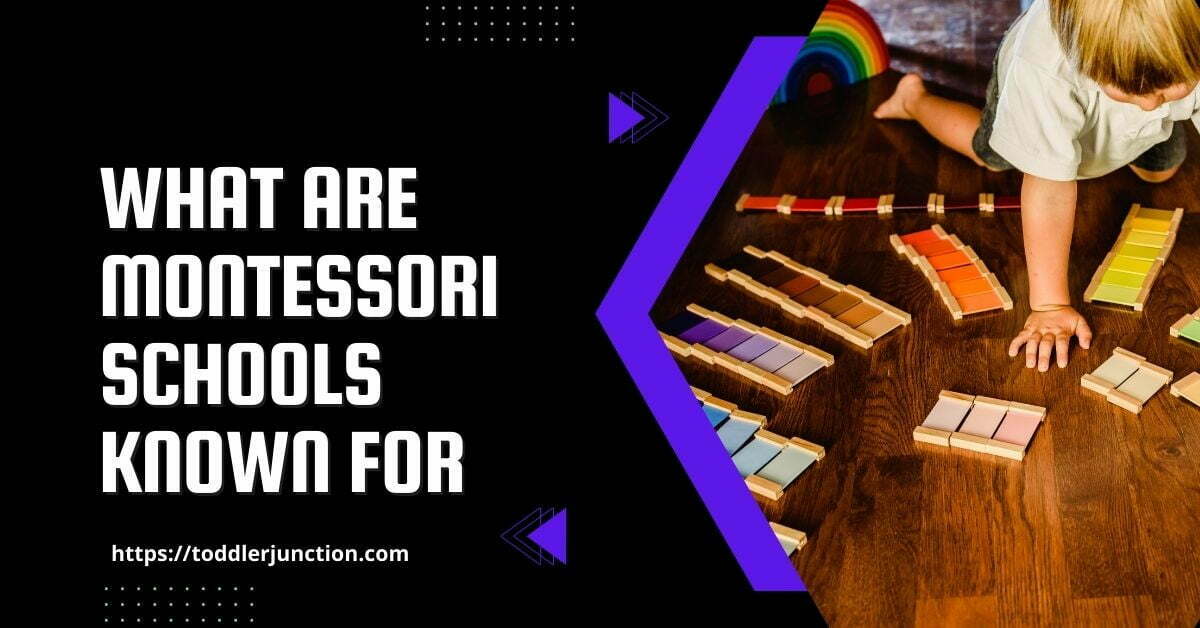Montessori schools are a unique and forward-thinking approach to early childhood education that has grown in popularity since their inception in 1907.
In contrast to traditional education, Montessori schools present a hands-on, student-centered approach to learning that enables students to explore their interests and develop their talents.
This teaching style is based on the assumption that children have an intrinsic curiosity and desire to learn, which can be cultivated by providing an interesting and supportive atmosphere.
Montessori schools are known for delivering a personalized education experience adapted to each student’s requirements and interests. They also try to instill in their students a passion for learning, innovative problem-solving, self-discipline, and a genuine appreciation for variety.
This blog post will look at what distinguishes Montessori schools and why they are becoming more unique.
We’ll look at how Montessori schools differ from typical schools in curriculum and teaching philosophy.
We will also go through the advantages that these schools bring to youngsters.
1. Individuality is valued.
Montessori schools are well-known for appreciating each student’s unique learning styles and developmental levels. Montessori schools urge teachers to engage with each student to personalize their education to their unique requirements rather than categorizing pupils into predefined academic levels.
This allows kids to attain their full potential and gain independence. Montessori schools also create a safe, supportive environment where kids of all ages and backgrounds can thrive.
2. Independent learning
Self-directed learning is a crucial component of Montessori education. This method empowers youngsters to take charge of their education by making decisions and investigating topics that interest them.
Children learn to be self-starters and independent thinkers in this manner, gaining the skills and information required for success in life. Hands-on learning is also emphasized in Montessori schools, allowing children to explore their surroundings via tactile and sensory experiences.
This type of education encourages children to think and work creatively, connecting the world to the resources they use.
3. Mixed-age classes
Montessori schools are well known for their multi-age classrooms, which house children ages three to twelve.
This novel unique strategy allows older students to serve as mentors and role models for younger students while younger students benefit from the direction and assistance they receive.
Students in multi-age classrooms can also move freely between activities that interest them, allowing them to develop at their own speed.
Furthermore, as children of all ages explore their interests together, this sort of classroom gives a wide range of learning possibilities.
4. Real-world activities
Montessori schools are well-known for emphasizing practical life skills. Students are involved in washing, folding, cleaning, and cooking activities.
These exercises instill a sense of independence and responsibility in the pupils. Students are encouraged to take the initiative to complete tasks independently with little assistance from the teacher.
Practical life activities can aid in developing fine motor skills, social skills, and problem-solving abilities in kids.
5. Emphasize autonomous problem-solving
The emphasis on individual problem-solving is one of the fundamental features that distinguish Montessori schools.
Montessori teachers recognize the value of enabling children to learn without direct adult supervision. This assists students in developing the abilities necessary to be self-sufficient problem solvers.
To do this, the classroom is set up to allow students to work independently, using materials customized to their interests and skills.
They are also encouraged to ask questions, investigate, and make mistakes to learn from their experiences.
Montessori schools help youngsters develop the abilities they need to become autonomous problem solvers in this way.
Conclusion
Montessori schools are well known for their unique educational method. They create a stimulating and supportive atmosphere in which children can learn and grow in the best way for them.
They emphasize individual respect, learning via curiosity, and instilling a lifelong love of learning. Montessori schools are a fantastic option for parents seeking a different educational experience for their children.


